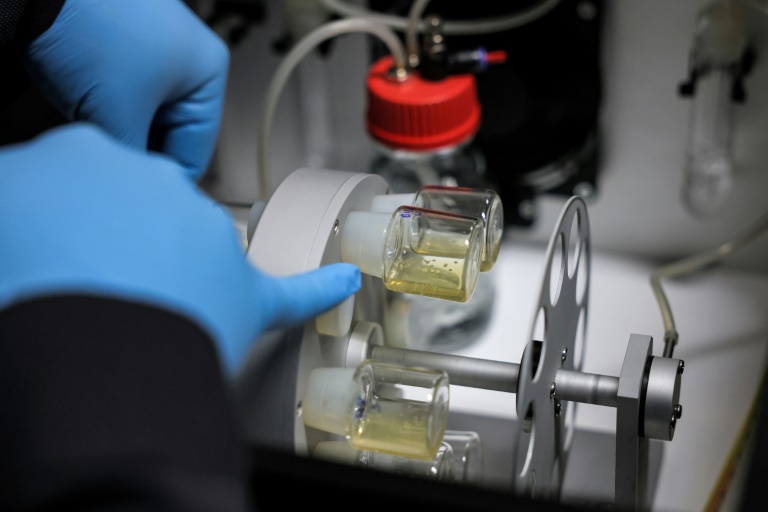Science
Minovia Therapeutics Advances Mitochondrial Therapies for Rare Diseases

An innovative approach to treating mitochondrial dysfunction is emerging through advancements in mitochondrial cell therapies. This progress is particularly significant as various health conditions are increasingly linked to mitochondrial issues. Minovia Therapeutics, a biotechnology firm co-founded by Dr. Natalie Yivgi-Ohana, is at the forefront of this development with its promising therapy, MNV-201.
Founded in 2012, Minovia Therapeutics focuses on creating transformative therapies for mitochondrial diseases, which can stem from genetic defects or dysfunctional pathways. Dr. Yivgi-Ohana, an experienced life science entrepreneur with a PhD in Biochemistry from The Hebrew University, leads the company in its pursuit of novel therapeutic solutions aimed at both children and adults suffering from these conditions.
Transforming Mitochondrial Therapy
Dr. Yivgi-Ohana explains that Minovia’s technology employs Mitochondrial Augmentation Technology (MAT). This first-in-class cell therapy aims to restore mitochondrial function by infusing patients’ own stem cells with healthy, energy-producing mitochondria. This process intends to improve overall patient health and restore organ function. Currently, MNV-201 is being evaluated in clinical studies for Pearson Syndrome, a rare pediatric disorder, and Myelodysplastic Syndrome (MDS), an age-related blood disorder.
The decision to focus on these diseases was strategic. According to Dr. Yivgi-Ohana, the initial research involved direct mitochondrial injections into muscles under ischemic conditions. However, due to regulatory challenges, Minovia shifted to an ex-vivo approach. This method involves collecting hematopoietic stem cells from patients, enriching them with placental mitochondria, and returning them to the bloodstream. This shift not only addresses regulatory concerns but also targets rare genetic mitochondrial diseases where there is a significant unmet medical need.
Longevity and Clinical Milestones
The implications of this therapy extend beyond immediate treatment of rare diseases. Preliminary results have suggested potential applications for longevity and regenerative medicine. Mitochondrial dysfunction is a key factor in the aging process, as mutations in the mitochondrial genome accumulate over time. Recent preclinical studies on aging mice demonstrated that MNV-201 could reverse age-related decline, improving mobility and kidney function.
In patients with primary genetic mitochondrial diseases, a single MAT treatment has shown promising results, including enhanced growth and cognitive abilities. A study conducted at Memorial Sloan Kettering Cancer Center indicated that MAT could delay the progression of Acute Myeloid Leukemia in mouse models, significantly extending survival rates.
Minovia’s lead candidate, MNV-201, is currently in a Phase 2 clinical trial in Israel for Pearson Syndrome, with preliminary safety and efficacy signals observed in four of six patients already dosed. The therapy has received Fast Track Designation from the U.S. FDA for both Pearson Syndrome and MDS, as well as Rare Pediatric Disease Designation for Pearson Syndrome. These designations are crucial as they validate the clinical approach and acknowledge the urgent need for new treatment options.
Looking ahead, Dr. Yivgi-Ohana highlighted that Minovia plans to expand its operations into the U.S. market, conducting pivotal studies that could lead to the first FDA-approved mitochondrial-based therapy. Additionally, the company aims to partner with longevity and regenerative medicine clinics globally, further enhancing its reach and impact in this burgeoning industry.
As Minovia Therapeutics continues its journey, the potential benefits of mitochondrial therapies promise not only to address rare diseases but also to revolutionize approaches to aging and overall health.
-

 Lifestyle1 month ago
Lifestyle1 month agoWinnipeg Celebrates Culinary Creativity During Le Burger Week 2025
-

 Health2 months ago
Health2 months agoMontreal’s Groupe Marcelle Leads Canadian Cosmetic Industry Growth
-

 Science2 months ago
Science2 months agoMicrosoft Confirms U.S. Law Overrules Canadian Data Sovereignty
-

 Education2 months ago
Education2 months agoRed River College Launches New Programs to Address Industry Needs
-

 Technology2 months ago
Technology2 months agoDragon Ball: Sparking! Zero Launching on Switch and Switch 2 This November
-

 Science2 months ago
Science2 months agoTech Innovator Amandipp Singh Transforms Hiring for Disabled
-

 Technology2 months ago
Technology2 months agoGoogle Pixel 10 Pro Fold Specs Unveiled Ahead of Launch
-

 Science2 months ago
Science2 months agoChina’s Wukong Spacesuit Sets New Standard for AI in Space
-

 Technology2 months ago
Technology2 months agoWorld of Warcraft Players Buzz Over 19-Quest Bee Challenge
-

 Business2 months ago
Business2 months agoDawson City Residents Rally Around Buy Canadian Movement
-

 Technology4 days ago
Technology4 days agoHuawei MatePad 12X Redefines Tablet Experience for Professionals
-

 Science2 months ago
Science2 months agoXi Labs Innovates with New AI Operating System Set for 2025 Launch
-

 Business2 months ago
Business2 months agoNew Estimates Reveal ChatGPT-5 Energy Use Could Soar
-

 Technology2 months ago
Technology2 months agoInnovative 140W GaN Travel Adapter Combines Power and Convenience
-

 Education2 months ago
Education2 months agoAlberta Teachers’ Strike: Potential Impacts on Students and Families
-

 Technology2 months ago
Technology2 months agoFuture Entertainment Launches DDoD with Gameplay Trailer Showcase
-

 Technology2 months ago
Technology2 months agoGlobal Launch of Ragnarok M: Classic Set for September 3, 2025
-

 Technology2 months ago
Technology2 months agoNew IDR01 Smart Ring Offers Advanced Sports Tracking for $169
-

 Technology2 months ago
Technology2 months agoArsanesia Unveils Smith’s Chronicles with Steam Page and Trailer
-

 Technology2 months ago
Technology2 months agoHumanoid Robots Compete in Hilarious Debut Games in Beijing
-

 Science2 months ago
Science2 months agoNew Precision Approach to Treating Depression Tailors Care to Patients
-

 Health2 months ago
Health2 months agoGiant Boba and Unique Treats Take Center Stage at Ottawa’s Newest Bubble Tea Shop
-

 Business2 months ago
Business2 months agoBNA Brewing to Open New Bowling Alley in Downtown Penticton
-

 Technology2 months ago
Technology2 months agoQuoted Tech Launches Back-to-School Discounts on PCs










